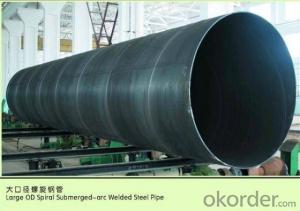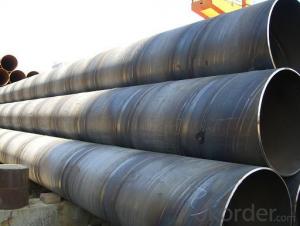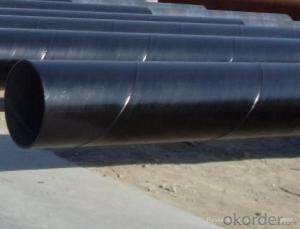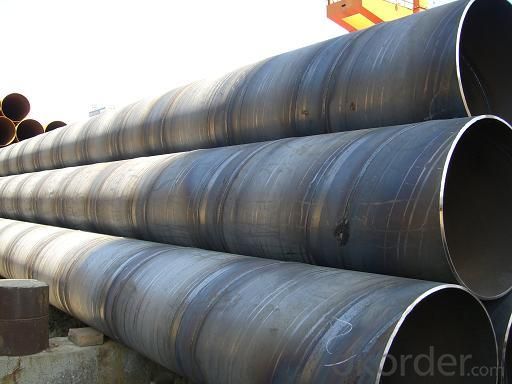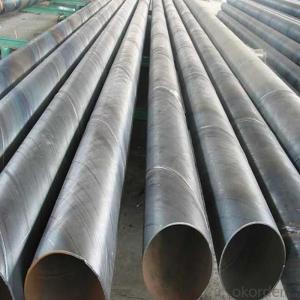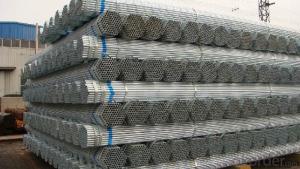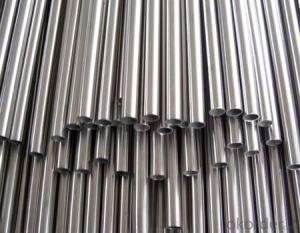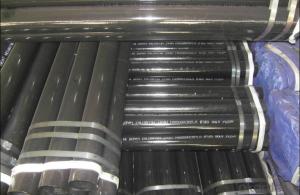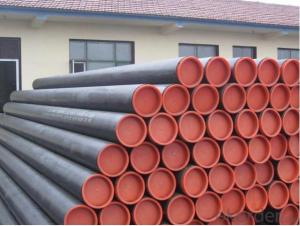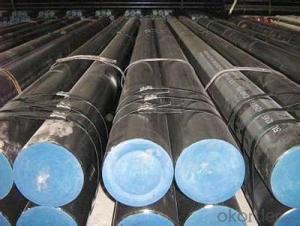SPIRAL CARBON STEEL PIPE ASTM A106
- Loading Port:
- China Main Port
- Payment Terms:
- TT OR LC
- Min Order Qty:
- -
- Supply Capability:
- -
OKorder Service Pledge
OKorder Financial Service
You Might Also Like
Packaging & Delivery
Packaging Detail: | standard export packing or as customer's requirement |
Delivery Detail: | within 10 - 30 days |
Specifications
Spiral Welded Steel Pipes and Tubes
1.Material:Q195-Q235
2.Length:1-12m
3.WT:1.0-14mm
4.O.D.:20-273mm
Spiral Welded Steel Pipes and Tubes
Product Description:
1.Material : Q235,Q345,L245,L290,L360,L415,L450,L485,GrB,X42,46,X52,X56,X60,X65,X70,X80,X100
2,Standard: SY/T5037-2000,GB/T9711-2011,API Spec 5L PSL1/PSL2,ASTM A252\A53,ISO3183,DIN17172,EN10217,JIS G3457,AWWA C200,ASTM A139,ASTM A671,ASTM A672
3.Wall thickness: 3.0mm-30mm
4.Outer diameter: φ168mm-3020mm
5,Length: 5m-12m or as your requirement
6,Corrosion protection standard: DIN30670,DIN30671, AWWAC210, AWWA C203, SY/T0413-2002,SY/T0414-2002
7,Application: Oil, gas, natural gas, water pipe, thermal electricity pipe, steel structure engineering, etc
Q195-q345 Material Steel Pipe's Materials
Elements | Chemical Compsition% | Mechanical Property | ||||||
| C% | Mn% | S% | P% | Si% | Yield Point (Mpa) | Tensile Strength(Mpa) | Elongation |
Q195 | 0.06-0.12 | 0.25-0.50 | <0.050 | <0.045 | <0.030 | >195 | 315-430 | 32-33 |
Q215 | 0.09-0.15 | 0.25-0.55 | <0.05 | <0.045 | <0.030 | >215 | 335-450 | 26-31 |
Q235 | 0.12-0.20 | 0.30-0.70 | <0.045 | <0.045 | <0.030 | >235 | 375-500 | 24-26 |
Q345 | <0.20 | 1.0-1.6 | <0.040 | <0.040 | <0.55 | >345 | 470-630 | 21-22 |
- Q: How long is the seamless tube?
- Welded pipe is generally 6912 meters fixed length, seamless pipe on the market in general non fixed foot, but usually more than 6 meters
- Q: Are steel pipes resistant to vibration?
- Yes, steel pipes have excellent resistance to vibration due to their high strength and stiffness properties. The inherent rigidity of steel makes it highly resistant to the effects of vibration, making steel pipes a reliable choice for applications where vibration is a concern.
- Q: Can steel pipes be used in extreme weather conditions?
- Yes, steel pipes can be used in extreme weather conditions. Steel is known for its high strength and durability, making it suitable for a wide range of applications including construction, infrastructure, and transportation. Steel pipes are commonly used to transport fluids and gases in various industries, and they are designed to withstand harsh environmental conditions, including extreme temperatures, high pressures, and corrosive environments. In extreme weather conditions such as extreme heat, cold, or heavy rain, steel pipes can maintain their structural integrity and functionality. Additionally, steel pipes can be coated or insulated to provide additional protection against corrosion and to maintain desired temperatures. Overall, steel pipes are a reliable choice for use in extreme weather conditions due to their strength, durability, and resistance to various environmental factors.
- Q: What is the maximum allowable stress for steel pipes?
- The maximum allowable stress for steel pipes depends on various factors such as the grade of steel, diameter, wall thickness, and the intended application. It is typically determined by industry standards and codes, such as the American Society of Mechanical Engineers (ASME) Boiler and Pressure Vessel Code. Therefore, there is no one-size-fits-all answer to this question.
- Q: How are steel pipes used in the construction of high-rise buildings?
- Steel pipes are commonly used in the construction of high-rise buildings for various purposes, such as structural support, plumbing, and fire protection systems. They provide strength and durability to the building's framework, allowing it to withstand heavy loads and extreme weather conditions. Steel pipes also play a crucial role in carrying water, sewage, and other utilities throughout the building, ensuring efficient functionality. Additionally, they are utilized in the installation of fire sprinkler systems, enhancing the safety measures of the high-rise structure.
- Q: Can steel pipes withstand high temperatures?
- Yes, steel pipes can withstand high temperatures. Steel is a strong and durable material that has high heat resistance. It can retain its strength and structural integrity even when exposed to extreme heat, making it suitable for various high-temperature applications such as industrial furnaces, power plants, and steam pipelines.
- Q: How do steel pipes handle water hammer in high-rise buildings?
- Steel pipes in high-rise buildings are designed to handle water hammer by incorporating various features. Firstly, these pipes are often equipped with pressure relief valves or surge tanks that absorb and dissipate the sudden pressure changes caused by water hammer. Additionally, engineers use techniques such as proper pipe sizing, installation of air chambers, and use of flexible connectors to minimize the effects of water hammer. These measures help to reduce the sudden pressure spikes and prevent damage to the pipes and other plumbing components in high-rise buildings.
- Q: How do you measure the diameter of a steel pipe?
- To measure the diameter of a steel pipe, you can use a few different methods depending on the available tools and accuracy required. Here are a few common ways to measure the diameter: 1. Calipers: The most accurate method is to use a set of calipers. Open the calipers to their maximum width and then gently close them around the pipe until they fit snugly. The measurement shown on the calipers will be the diameter of the pipe. 2. Tape measure or ruler: If you don't have calipers, you can use a tape measure or ruler. Wrap the tape measure or ruler around the circumference of the pipe, making sure it is snug but not too tight. Divide the measurement by pi (3.14) to get the diameter. This method may not be as accurate as calipers, but it can give you a rough estimate. 3. String or flexible tape: Another option is to use a piece of string or flexible tape. Wrap the string or tape around the circumference of the pipe and mark where it overlaps. Measure the length of the marked section using a ruler or tape measure. Divide this measurement by pi (3.14) to determine the diameter. 4. Pipe gauge: A pipe gauge is a specialized tool designed specifically for measuring pipe diameter. It consists of a series of circular holes with corresponding diameter labels. Simply insert the pipe into the hole that best fits, and the label will indicate the diameter. Remember, it is essential to measure the diameter at multiple points along the pipe to account for any irregularities or inconsistencies. For accurate measurements, it is recommended to take multiple readings and calculate an average diameter.
- Q: How are steel pipes protected against corrosion in marine environments?
- Steel pipes are protected against corrosion in marine environments through various methods, such as applying protective coatings, using sacrificial anodes, employing cathodic protection, and implementing corrosion inhibitors.
- Q: How are steel pipes used in the manufacturing of pulp and paper mills?
- Steel pipes are used in the manufacturing of pulp and paper mills for various purposes, such as conveying water, steam, and chemicals, as well as transporting pulp and paper materials within the facility. These durable pipes are essential for the efficient and reliable operation of the mills, ensuring a continuous flow of resources and facilitating the production processes.
Send your message to us
SPIRAL CARBON STEEL PIPE ASTM A106
- Loading Port:
- China Main Port
- Payment Terms:
- TT OR LC
- Min Order Qty:
- -
- Supply Capability:
- -
OKorder Service Pledge
OKorder Financial Service
Similar products
Hot products
Hot Searches
Related keywords
